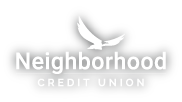
Beware Scholarship Scams
Published August 23, 2023
As a new round of individuals seeking higher education begin their fall semester, the quest for scholarships to alleviate the financial burden has intensified. However, within this landscape of opportunity, a darker reality exists—college scholarship scams. These scams prey on the hopes and dreams of students and parents, luring them into fraudulent schemes that promise financial aid but deliver nothing but disappointment and financial loss.
The Allure of Scholarships
Scholarships are a beacon of hope for many aspiring students, offering the promise of funding their education dreams. With the rising costs of tuition, textbooks, and living expenses, it's no wonder that students and parents actively seek financial aid options. Unfortunately, scammers exploit this, employing various tactics to deceive and manipulate unsuspecting individuals.
Common Scholarship Scam Tactics
- Upfront Fees: Legitimate scholarships never require an upfront fee. If you're asked to pay to apply or receive a scholarship, it's likely a scam. Watch out for phrases like "processing fee" or "guaranteed scholarship for a fee."
- Too Good to Be True: If a scholarship promises an unbelievably large sum of money or claims that you've won a scholarship you never applied for, exercise caution. Scammers often use such promises to entice victims.
- Personal and Financial Information: Be wary of scholarship applications that ask for excessive personal or financial information. Scammers might use this data for identity theft or other fraudulent activities.
- Pressure Tactics: Some scammers create a sense of urgency, pressuring applicants to act quickly. Legitimate scholarships have set deadlines and don't rely on high-pressure tactics.
Protecting Yourself from Scholarship Scams
- Research Thoroughly: Before applying for any scholarship, research the organization offering it. Legitimate scholarships are usually offered by reputable foundations, educational institutions, or government entities.
- Trust Your Instincts: If something feels off about a scholarship opportunity, trust your instincts. Legitimate opportunities adhere to professional standards and ethical practices.
- Verify Contact Information: Scammers often use fake emails or phone numbers. Look up the official contact information of the scholarship provider independently.
- Use Reputable Sources: Stick to well-known scholarship search websites or platforms recommended by educational institutions. Be cautious with offers received through unsolicited emails or social media messages.
In the pursuit of higher education, it's essential to be aware of the risks posed by college scholarship scams. These fraudulent schemes prey on the vulnerable hopes of students and parents, but by staying informed and vigilant, you can protect yourself from falling victim. Remember, legitimate scholarships aim to support your academic journey, not exploit your aspirations. As you explore scholarship opportunities, research diligently, ask questions, and trust your instincts. By doing so, you can navigate the path to education with confidence and avoid the pitfalls of scholarship scams.
Catch Up on More News
Explore News & Events for more updates on what's happening in your community and at the credit union.
Who We Are
As an active part of the community for 93 years, Neighborhood Credit Union is a not-for-profit financial organization serving the state of Texas with branch locations in Collin, Dallas, Denton, Ellis, and Tarrant counties. With assets topping $1 billion, Neighborhood Credit Union has a continuously growing membership of over 60,000. For more information, call (214) 748-9393 or visit our homepage.

